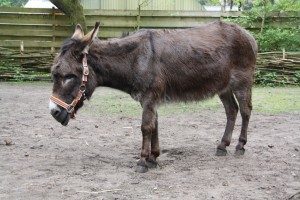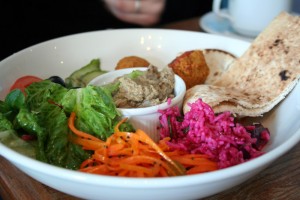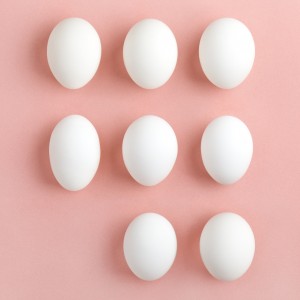Worldlog Settimana 10 – 2013
Dopo una settimana di vacanza di nuovo siamo molto impegnati. Questa settimana ho fatto delle domande nella Camera sugli asini a S. Eustasio, un comune olandese nelle Caraibe. Decine di asini che prima erano liberi, ora vivono in circostanze pessime dentro dei recinti. Ho chiesto al governo olandese di agire per prevenire che più animali diventino vittime di questa pratica.

Giovedì scorso ho presentato “La mia idea per i Paesi Bassi”. Sono una degli olandesi che erano stati invitati ad una serie di dibattiti serali sulla mia visione del futuro del paese. Uno degli argomenti della serata era il fatto che sostituendo en masse il consumo di carne con altri sostituti rende ciò più economico della carne. I sostituti della carne richiedono da cinque a otto volte meno soia. Così riusciamo a continuare ad alimentare il pianeta senza impoverirlo. Mi sembra una buona idea!

Questo filmato è di nuovo un brutto esempio della maniera in cui si trattano gli animali nell’allevamento intensivo del bestiame. Mi piace l’idea di diventare vegetariani dopo aver visto il filmato 🙂
Questa settimana abbiamo fatto domande anche su uno steakhouse ad Amsterdam che da 63 anni vende la bistecca equina come se fosse una bistecca bovina. Le normative olandesi non consentono di vendere la carne come bistecca se non origina dal bue. E’ molto strano che l’ente controllore non sia interessato ad affrontare il caso. Voglio che l’ente prepari il caso per motivi di frode e non rispettare delle normative.
Abbiamo fatto altre domande alla Camera su scandali legati all’origine del cibo. Ho illuminato che in Germania esiste un’importante frode con l’origine delle uova. Consumatori pensavano di comperare delle uova biologiche, invece erano uova normali. Anche il British Lion Egg Processors, l’organizzazione britannica per l’origine delle uova, ha concluso che dall’inizio dell’anno scorso oltre 12,5 miliardi di uova provenienti da metodi illegali, siano arrivate sul mercato. Voglio sapere dal ministro di Economia cosa farà per informare i consumatori olandesi sull’origine dei prodotti animaleschi. Deve essere rinforzato anche il controllo, soprattutto ora che si vedono passare tanto scandali nel settore alimentare.

I consumatori nei Paesi Bassi e in Europa sono malinformati sull’origine del cibo e la prodizione di ciò, che spesso coinvolge delle pratiche dannose per gli animali o per l’uomo. Pertanto riteniamo che il governo debba chiarire ciò tramite un sistema solido di etichette. Questo sistema deve comprendere il paese d’origine del prodotto animalesco e il metodo di produzione: secondo quali norme di benessere degli animali ed ambientali e sotto quali circostanze sociali è stato prodotto!
Questa domenica sarà la secondo giornata di piantare degli alberi. Alla fine del 2011 abbiamo cominciato la nostra campagna che propone di comprare un albero e piantarlo come protesta contro i tagli sulle spese ambientali nei Paesi Bassi. Il primo giorno era alla fine del 2011 ed era un grande successo. Abbiamo piantato 5.000 alberi. Speriamo di poter piantare nuovamente 5.000 alberi questa domenica!

Una bella notizia: all’inizio di aprile esce il nostro documentario Meat the Truth in Francia come film e come libro.
Vi auguro una buona settimana! Marianne
We’re right back at it after a week’s recess. This week, I asked parliamentary questions about donkeys on Sint Eustatius, a Dutch municipality in the Caribbean. They are keeping dozens of donkeys that used to roam free in a fenced-off area, under wretched conditions. I also asked the Dutch government to take measures to stop further animal victimisation.

Last Thursday, I presented “My Idea for the Netherlands”. I am one of a few lucky Dutch citizens who were picked to present their idea of what future the Netherlands faces in a series of debates. One of the evening’s themes was ‘If we all started eating meat substitutes, they would become cheaper than meat is now’. Creating meat substitutes requires five times less soy than meat. This means we could feed the world without depleting the earth. That sounds like a good idea to me!
This clip is another horrifying example of how animals are mistreated in intensive cattle farming practices. Perhaps after viewing the film, you might like to contemplate turning vegetarian? 🙂
This week we also asked questions about a steakhouse in Amsterdam that has been selling horse meat as beef steak for 63 years. The Dutch Commodities Act means that no one can sell meat as ‘steak’ if it doesn’t come from a cow. How strange that the controlling body (the nVWA) hasn’t done anything about it. I want the nVWA to issue them a ticket for deception and for violating the Commodities act..
I also asked parliamentary questions about other food source scandals. I raised such issues as German consumers being defrauded on a large scale when it comes to eggs. Consumers believe they are buying organic eggs whereas they are really buying ordinary eggs. The British Lion Egg Processors, the organisation behind the British egg quality mark, has also established that since the start of last year, more than 12.5 billion battery hen eggs have been sold, despite them being banned as 1 January 2012. I want the State Secretary of Economic Affairs to tell me what she’s going to do to put Dutch consumers’ minds at rest when it comes to the origin of their animal products. We also need to drastically expand our investigative and enforcement capacities – especially now that we’re having one food scandal after the other.

The Dutch and European consumer is very badly informed on where there food comes from and the negative effects this can have on both people and animals. We believe that the government needs to use a proper sticker system to create clarity in this regard. This sticker system needs to clearly show which country an animal product comes from and how it was produced: it should also include under which animal welfare and environmental standards it was produced and under which social circumstances!
Coming Sunday is our second Tree Planting Day. We started our Green Resistance campaign at the end of 2011. We suggested that people buy a tree and plant it as a protest against nature cut-backs in the Netherlands. The inaugural Tree Planting Day was at the end of 2011 and it was a raging success – we planted 5,000 new trees! This Sunday we hope to plant another 5,000!

A neat little newsflash: Our documentary Meat the Truth will be released in France as a film and a book at the start of April.
Have a great week! Marianne